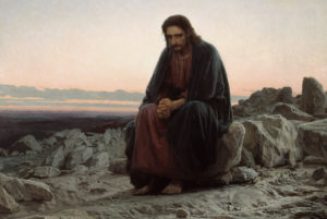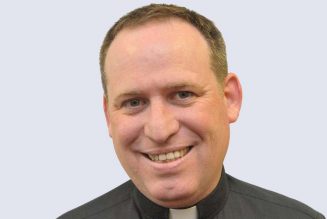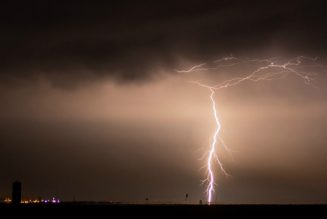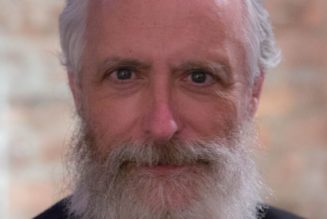
What is the future for Notre Dame?
The mood is rather bullish, at least in parts of Notre Dame right now. Last year the university gained admission to the American Association of Universities (AAU), reputedly the nation’s leading organization of research-intensive universities. The money continues to roll in to America’s best-known Catholic university. Generous donors continue to support the university and brilliant financial management has led to ND’s endowment now standing at seventh among private universities—larger than Chicago and Columbia and Northwestern. Old buildings are torn down and new ones constructed at a rapid rate. More impressive edifices are planned in the future. Last summer a 10-year plan entitled Notre Dame 2033: A Strategic Framework was released, and it stipulates that Notre Dame must be “the leading global Catholic research university, on par with but distinct from the world’s best private universities” within the decade.
The Notre Dame 2033 framework is presented as the roadmap for Notre Dame to make a major advance (please never say “great leap forward!”) over its existing state. The model for emulation apparently is Duke University, which enjoyed a rapid rise in the rankings during the past quarter century. Notre Dame plots to match the Blue Devils’ performance and, by improving the quantity and quality of its research, to move the Fighting Irish up in the academic standings. New collaborative research initiatives—such as the study of poverty, ethics and democracy—are devised, which not only are calculated to boost Notre Dame’s scholarly prominence but also to do some good in the world.
In the process Notre Dame 2033 assures its various audiences that the university will maintain its distinctive religious identity. Indeed, the cleverly constructed document offers appropriate reassurance that Notre Dame is anchored in Roman Catholicism and that its approach will bridge “faith and reason.” The very first goal delineated for the university is the noble ambition to “ensure that our Catholic character informs all of our endeavors.” There is even a whole section of the document devoted to “Global Catholicism” in which plans to build on recent efforts to internationalize the university are proposed.
What’s not to love? Certainly, the document appears to have been well-received at the various outreach occasions featuring the leading university administrators. And events highlighting some of the directors of the university-wide research initiatives have been well-attended by faculty and staff eager to share some chardonnay with colleagues and to learn of possible funding opportunities.
And yet, some unease should surround the plans laid forth in Notre Dame 2033. Despite the soothing reassurances to the contrary, the strategic framework largely ticks the ‘Catholic’ box but doesn’t propose developments that will allow Notre Dame to fulfill its true promise as a Catholic university. In reality, the document is caught in a serious contradiction. Notre Dame’s eagerness to entrench itself further among America’s elite universities demands that it be fixated on prestige and rankings. The difficulty is that all the measures to indicate progress toward this goal are determined by major secular institutions. To advance in the rankings, Notre Dame needs to impress the elites of the secular schools that dominate the AAU.
Sadly, there is little recognition in Notre Dame 2033 that the present state of higher education in the United States is deeply flawed and, in some ways, antithetical to a legitimate Catholic mission. There is no recognition in the planning document that American higher education, increasingly dominated by what might be termed “wokeism,” is in need of serious reform and renewal. The recent events on major elite campuses following the Hamas attacks of October 7 have provided some glimpse of the deep-seated problems in these institutions. The genuine pursuit of truth is now subject to constraints imposed by progressive ideology in its various manifestations. Yet, it is the approval of institutions dominated by such ideology that Notre Dame seeks.
Sadly, it must be said that Notre Dame’s guiding strategic framework fails to set forth a distinctive vision for the university inspired by its Catholic character. It has something of the tone of a Catholic NGO that, while appearing to elevate its religious mission, conforms overmuch to the spirit of the age. There is a disposition of accommodation running through the document. It reveals a certain insecurity of those who believe that Notre Dame’s mission is to gain a place at the table with what passes for the contemporary academic elite. Might we even say that there is still an evident desire to kneel before the world? There is neither a strong element in the document calling Notre Dame forth to stand over and against the world nor any recognition that our university holds a special responsibility to challenge and, dare we say, to convert a higher education sector that has, in a significant manner, lost its way.
The risk that the quest for prestige will trump the commitment to Catholic identity and mission might be illustrated by the specific example of the Notre Dame Ethics Initiative. The ethical questions the document addresses look rather like those of any secular school. There is no evidence in this section that Notre Dame’s ethical principles must be rooted fundamentally in the Gospel of Jesus Christ. There is no evidence here that undergirding Notre Dame’s approach to ethics must be a distinct Christian anthropology of what it means to be human. The present document seems designed for Notre Dame to make something of a ‘splash’ in the contested world of contemporary ethics, where Christian assumptions are, to put it mildly, little valued.
A truly Catholic university, however, won’t worry about matters of such acceptance. Instead, it will make itself into a bulwark to defend the value and dignity of every human person. Notre Dame’s planning for the future should emphasize the crucial teaching of John Paul II in Evangelium Vitae and assure that the Gospel of Life is presented and defended vigorously. This will not win us kudos among some of our ‘preferred academic peers,’ but it will ensure that Notre Dame fulfills its Catholic promise. That would make Notre Dame truly distinctive, even if it damages us in the ratings game. It would make Notre Dame the kind of institution that the world needs—a beacon of light for a confused and increasingly anti-Christian culture.
For Notre Dame to overcome its fixations about ratings and its insecurity regarding how we are viewed by others will require that we be deeply rooted in our discipleship of Jesus Christ — a name that is notably missing from Notre Dame 2033. When we have Christ, the logos, as our guiding force and central inspiration, we can go forth well-armed to resist the moral relativism and wokeism that is so pervasive in contemporary higher education. There are many good folk at Notre Dame—faculty, staff and students—who wish to develop the university in this manner. It will be crucial that their efforts not be stymied by the sad quest for secular prestige that pervades Notre Dame 2033.
In the end, Notre Dame needs to choose whether it will be a deeply and genuinely Catholic university or if it will be driven to conform to the reigning paradigm of elite American universities. Perhaps we might say there are two options that lie before Notre Dame, and a choice will ultimately need to be made. The options can be illustrated by some scriptural references. The first is taken from Luke’s Gospel, chapter 12, verses 16 to 21, often referred to as the parable of the rich fool. It tells the story of the rich man who, in his wealth, tore down his barns to build bigger ones so as to impress others. He was wealthy, but “not rich in what matters to God.” The second reference draws on the opening verse of Psalm 127. It should be the mantra that guides all of our endeavors at Notre Dame: “If the Lord does not build the house, in vain do its builders labor.”
We must pray for those who lead and will lead Notre Dame, that their commitment to build a Catholic university might move beyond the prescriptions of Notre Dame 2033 so as to develop the deeper and richer promise that takes the Gospel as its inspiration. We must renew our fidelity to Notre Dame’s Catholic mission and work for Our Lady’s University to be true to its sacred purpose so that our school attends first and always to the “things that matter to God.”
Fr. Bill Miscamble is a professor in the Department of History and serves proudly on the Faculty Advisory Board of the Irish Rover.
Photo Credit: Matthew Rice
Subscribe to the Irish Rover here.
Donate to the Irish Rover here.
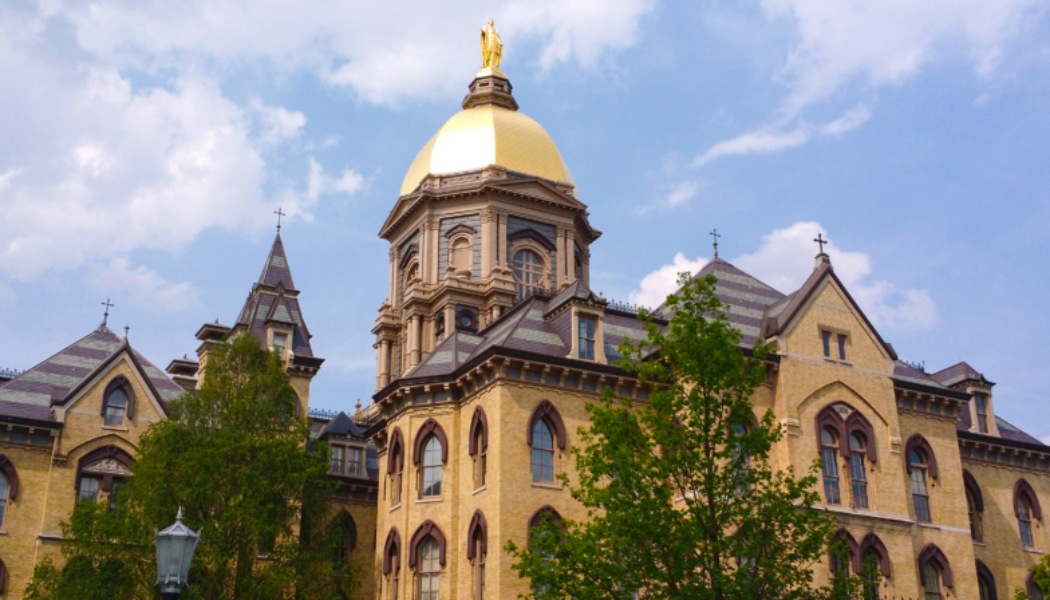
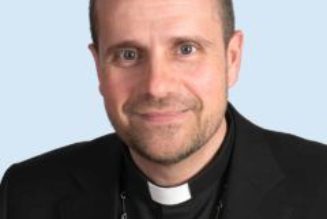
![“I’d never been involved in anything as secret as this”: A riveting oral history of the operation to kill Osama bin Laden [language warning]…](https://salvationprosperity.net/wp-content/uploads/2021/05/id-never-been-involved-in-anything-as-secret-as-this-a-riveting-oral-history-of-the-operation-to-kill-osama-bin-laden-language-warning-327x219.jpg)
